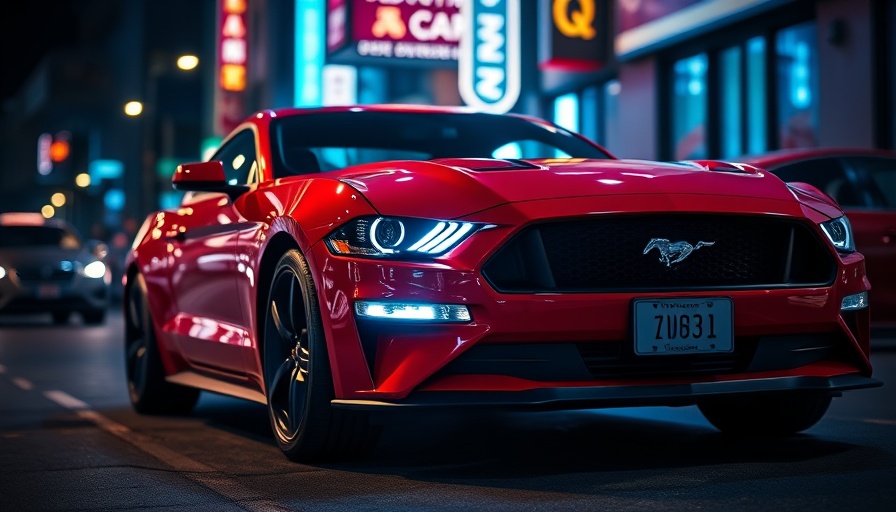
Ford’s Commitment to the Mustang’s Legacy
In a bold announcement, Ford has confirmed that the iconic Mustang sports car will not be transitioning to an all-electric model anytime soon, beyond the already existing Mustang Mach-E. This decision affirms the traditional muscle car's role and connects with a robust community of enthusiasts who appreciate the combustion engine. Ford recognizes that the Mustang is more than just a car; it embodies a rich history and a lifestyle that many fans hold dear.
Understanding Ford’s Electrical Strategy
This move comes at a time when many automobile manufacturers are rapidly pivoting towards electric vehicles. As automakers like Tesla and Nissan electrify their fleets, there is significant market pressure on traditional brands. Ford, however, seems keen on striking a balance between innovation and tradition. While they delve deeper into the electric space with models like the F-150 Lightning and Mustang Mach-E, they have chosen to keep the Mustang's heritage alive.
The Enthusiast Perspective: Why Tradition Matters
Fans of the Mustang have long cherished the roar of its engine and the thrill of driving a traditional sports car. This decision resonates strongly within the car community, underscoring the emotional value tied to gasoline-powered vehicles. Many enthusiasts argue that while electric cars present an eco-friendly future, the unique experience of driving a Mustang remains irreplaceable.
Future Trends: Hybrid Models on the Horizon?
Ford's cautious approach raises intriguing questions about the future of automotive technology. With a growing interest in hybrid engines, which combine traditional fuel with electric power, Ford could be considering innovative pathways for the Mustang that retain its classic elements while embracing technological advancement. This could enable the brand to appeal to both classic enthusiasts and environmentally conscious consumers.
Consumer Insights: What Does This Mean for Buyers?
For potential buyers, this commitment to the Mustang’s traditional roots could be seen as a compelling reason to invest in a classic model while the opportunity still exists. As more manufacturers shift towards electric-only offerings, having a combustion engine alternative is valuable, especially for those who value performance over fuel economy.
The Bigger Picture: Legacy vs. Innovation
Ford’s decision places it at the forefront of an interesting debate in the automotive industry: the conflict between heritage and modernization. While innovation is critical, maintaining connections to heritage can offer unique brand loyalty and consumer trust. Ford seems to understand that a balance must be struck for long-term success.
In conclusion, by holding firm to the Mustang's traditional design for the foreseeable future, Ford is not just protecting a legacy; it’s also making a statement about valuing customer connection and passion for the classic driving experience.
If you seek to understand more about automotive trends or enhance your car-buying decision-making, consider exploring Ford's current offerings and how they balance tradition with future advancements. Remember, the driving experience is not just about fuel; it's about passion.
 Add Row
Add Row  Add
Add 




Write A Comment